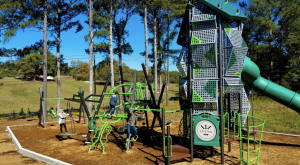Actor: How will 2022 be different?

W.C. Fields, American Actor and Comedian, famously stated in Hollywood, “Never work alongside animals or children.” They are unpredictable and can “steal the scene”. It would be best if you, therefore, worked with them. Observing how their lack of self-consciousness or fear of judgement allows them to be themselves and free to play and express themselves authentically is why I strongly believe you should.
Many of us developed coping strategies to protect our inner child, the younger version of ourselves as we grew up. These coping strategies do not reflect our uniqueness as actors or humans.
We will call any event, situation or experience that distresses the inner child trauma. These experiences can be anything from being abandoned by a childhood friend to being abused by a parent or guardian or even throwing away our favourite toys. The experience must have a positive impact on our younger, playful selves.
Your inner child was always hopeful, curious, and playful before learning otherwise. These childhood traumas created behavioural strategies that protect or shield you from future traumas. These traumas are often at the root of many of our fears and phobias, insecurities, as well as our self-sabotaging tendencies, our desires, and our insecurity.
This might be a question you may ask: “How is it relevant for an Actor?”
The connection to our inner-child consciousness is precisely where authenticity lives.
Actors who show courage and are unapologetic about their actions attract audiences. You can make authentic and fearless choices when talking to your inner child. A great acting teacher, Stella Adler, said, “your talent lies within your choices.”
George Konstant: “To find your authentic self, consult your inner child.”
You can use these four exercises to establish a dialogue between your adult self, your inner child, and yourself.
Take a look at photos of yourself as a child.
The holidays are a great time to connect with your inner child. It’s all familiar: sounds, smells and lights. It would help if you remembered childhood traumas that pushed you to a defensive position. Recalling your childhood traumas will help you find your authentic self, the part that loved, hated and saw the world differently.
Do what you used to love as a child.
Did you like to sing, dance, draw, or run? Do you enjoy watching movies, going to the park, riding your bike or listening to a certain singer? You can take some time to recreate the things you enjoyed as a child. Don’t be afraid to let go of judgment and have fun – it’s like a date with a 7-year-old version of yourself.
Talk to your inner child.
Ask your inner child questions and let them answer. What would you do to make your day more fun? If you are struggling with daily indecision, talk to your 7-year-old self. This will spark curiosity and open doors to new possibilities. Do not judge their words, but reassure them lovingly. They will be open to learning and eager to have fun. Side note: Just because your inner child wants to jump off the roof doesn’t mean it is a smart decision. However, the childish impulse can be enough material for an adult to respond uniquely.
Hand in hand
A beautiful friendship is the best thing for your soul. Often we find people outside of ourselves to be our “best friend”. This exercise has made a huge difference in my experience working with actors. For the next 30 days, imagine your 7-year-old self is with you everywhere. Talk to them before making any decision. Give them time and love, and let them respond without judgement or punishment. Be your best friend. This exercise is magical!
Paul Newman is right that acting is like being a child. Reconnecting with your inner child can help you find moments and choices in your work inspired by your unique, playful, and impulsive part.




